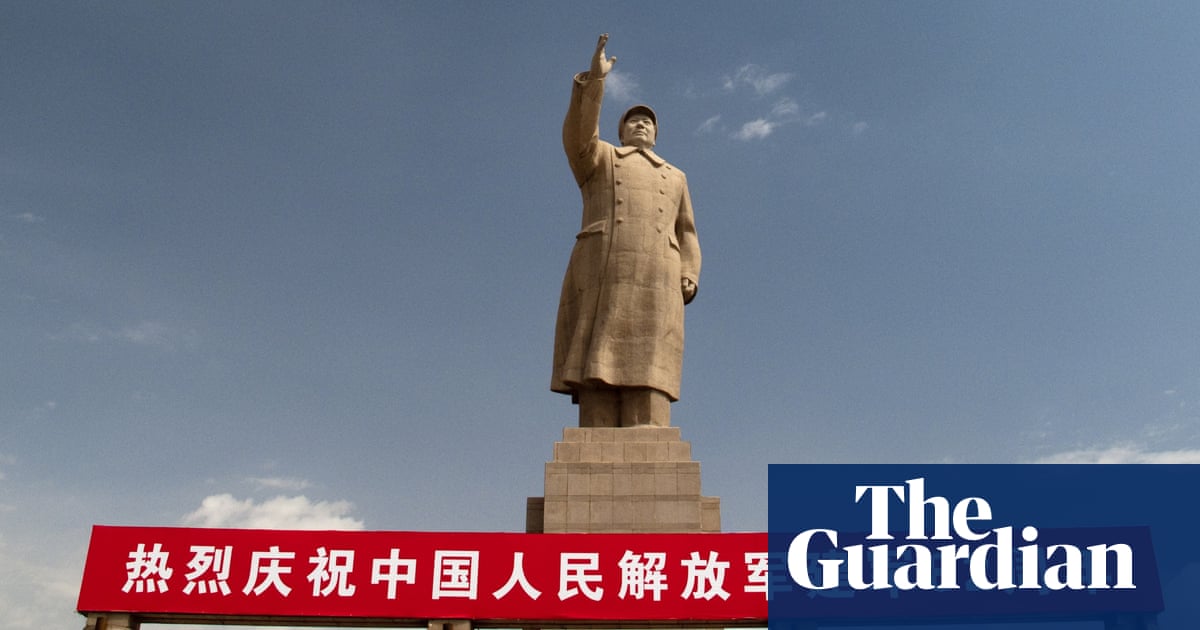
T
There are numerous instances of atrocities in China’s recent history for those interested in exploring its darker past. These include the 1967 incident where over 9,000 individuals were killed by Communist party members in Dao County and their bodies were dumped into a river to decay. Another example is the starvation and cannibalism of prisoners at Jiabiangou labor camp in Gansu during the late 1950s. However, for many people, the challenge lies in being able to acknowledge and remember that these events actually took place.
The concept of memory is a complex and elusive subject for those studying China. Works like Tania Branigan’s Red Memory have illustrated that even individuals who experienced the Cultural Revolution have difficulty interpreting their own memories. The government maintains strict authority over the accepted version of events: China’s leader, Xi Jinping, has cautioned against “historical nihilism” and believes that the Soviet Union’s downfall was a result of allowing people to doubt and lose trust in the party’s portrayal of history.
Award-winning journalist Ian Johnson addresses this challenging topic by exploring the perspective of China’s “counter-historians.” These individuals use different forms of expression, such as documentaries, fiction, and woodcuts, to document their own version of China.
Ai Xiaoming, a feminist academic and filmmaker in her seventies, has dedicated much of her life to creating documentaries on sensitive subjects that the government would prefer to be ignored. This includes the 2008 Wenchuan earthquake, where government negligence resulted in the deaths of tens of thousands. Her most extensive project is a five-part series on Jiabiangou, where she interviewed Si Jicai, a survivor who recounted consuming the bodies of his fellow prisoners. Despite being prohibited from leaving China, Ai continues to persevere in her filmmaking endeavors.
Instead of using Johnson’s chosen title, “jianghu” could have been a more poetic option. This word, derived from Mandarin, translates to “rivers and lakes”, but can also be associated with honorable outlaws who have traditionally inhabited remote and unmanageable regions of the country. Throughout history, China’s lush and secluded areas have been home to rebels and recluses who rejected the authority of the ruling emperor. Johnson’s strength is in highlighting the philosophical connections between China’s physical landscape and its political and societal makeup. Similar to the jianghu, the anti-establishment historians are fiercely independent and refuse to be controlled. They are motivated by moral principles rather than personal gain.
His book is named after a small magazine that was published in 1960 and had a brief but notable existence. The magazine is the focus of a documentary by well-known filmmaker Hu Jie, which can be found on YouTube. It was created by a group of students who became disenchanted with the shortcomings of the Communist party. As a result, they were imprisoned for many years and two of them were even put to death during the tumultuous Cultural Revolution.
Although they met unfortunate fates, these student publishers left a significant mark on future historians. Johnson suggests that the efforts of their followers, such as Hu, Ai, and countless other writers, filmmakers, and artists who challenge the government, will be hard to suppress. Despite Beijing’s high spending on domestic security, comparable to its budget for national defense, underground historians in China persist in their work.
It is deeply satisfying to read a book about China that could only have been written after decades of serious engagement with the country. As the veteran China-watcher Perry Link put it recently, Johnson “writes entirely from the indigenous side of the seam”. Better yet to consume the works of these Chinese counter-historians directly, and Johnson closes the book with a plea to readers to engage with his subjects, despite the political, geographical and linguistic challenges.
According to Hu’s conversation with Johnson, the historians of China’s past were not afraid to sacrifice their lives. They died in secrecy, and as a result, we are unaware of the bravery and heroism they possessed. This lack of knowledge is a tragedy.
Amy Hawkins serves as the senior correspondent for China at The Guardian.
Source: theguardian.com


